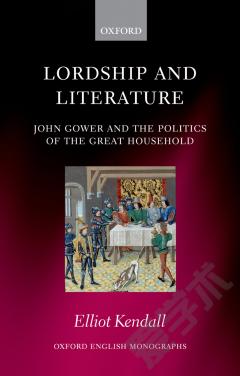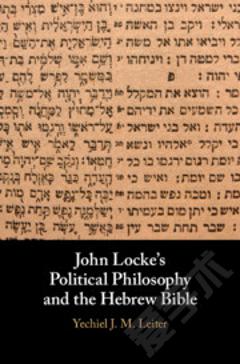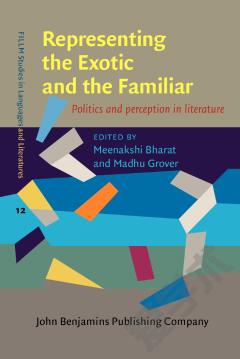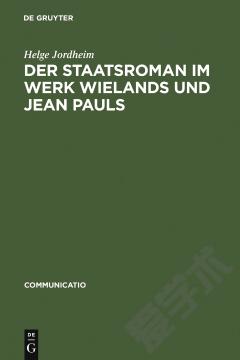Lordship and Literature —— John Gower and the Politics of the Great Household
----- 贵族和文学:约翰 高尔半岛和大家族政治
Readers coming to "Lordship and Literature: John Gower and the Politics of the Great Household" eager for fresh insight into Gower's poetry may initially be somewhat daunted. Lest any be beguiled by the subtitle, "Lordship and Literature," as the title states--and not John Gower--is what occupies the bulk of this book. The Confessio Amantis (nominally Kendall's central text) is not really Kendall's subject. Rather, as he clarifies (64): "Gower's poem offers us a lens on [sic] a landed habitus in the late fourteenth century. To explore the poem in this way will uncover the lordship economics that it disparages, promotes, or takes for granted in service, hospitality, marriage, dispute resolution, and kingship." For Kendall, thus, CA is "a lens," an instrument valuable to take sightings of the material that truly holds his interest "lordship economics . . . service, hospitality, marriage, dispute resolution, and kingship." In many ways, one thinks, "Piers Plowman" (about which Kendall says very little) or "Sir Gawain and the Green Knight" (about which he says a good deal, all of it quite thoughtful) might have served his turn equally well. Nevertheless, readers in search of Gower should persevere. Kendall can be a perceptive and credible witness to Gower's poem, notably in Chapter Five, "Women as Household Exchange in Genius's Tales," and Chapter Seven, "Retribution as Household Exchange in Genius's Tales." In both he approximates close readings--in the former case, of the tales of Leucothoe, Virginia, Dido, Phyllis, Rosiphelee, Medea, the princess of Pentapolis whom Apollonius marries, Jephte's daughter, and Rosemund; in the latter, of Mundus and Paulina, Constance, the False Bachelor, Tarquin, Arruns and Brutus, Virginius, and Orestes. Kendall's detailed readings of Virginia, the princess of Pentapolis, Rosiphelee and Rosimund as women both exchanged and resistant especially justify his careful study of Levi-Strauss, Gayle Rubin, Maria Bullon-Fernandez, and Larry Scanlon. Similarly, when he selectively applies Richard Firth Green's "Crisis of Truth: Literature and Law in Ricardian England," Scanlon, and J.G. Bellamy to the False Bachelor, and, in a lesser degree, to Virginius, he is particularly thought-provoking. He is perhaps at his best in his treatment of Orestes, a "narrative [that] distinguishes Orestes from illicit killers, and in so doing creates a positive exemplum less against murder than for the ordering powers of reciprocalist (a term Kendall borrows from Felicity Heal, to mean "aristocratic") lordship" (234). It is the tensions in the tale that draw Kendall's attention, and he rightly makes the most of them as extendable into the Confessio's larger structure and concerns. In sum, then, there is in "Lordship and Literature" much matter, and many reasons to invest time in its study. Historians of a certain kind, and social theorists, will find it challenging. And if there is not a great deal new in its greater argument for those familiar with Gower's poetry (Kendall's major thesis--that "By deftly demeaning Amans and the magnificent politics to which he aspires, the Confessio supports a notion of a political community dominated by the mutual interests, aid, and responsibilities of gentry, nobility, and royalty" (264)--sounds rather like Russell Peck's "Kingship and Common Profit" in a new bottle), his closer readings, once rescued from the verbiage, are many of them illuminating, original, and instructive. [RFY. Copyright. The John Gower Society. JGN 28.1]
{{comment.content}}








 京公网安备 11010802027623号
京公网安备 11010802027623号